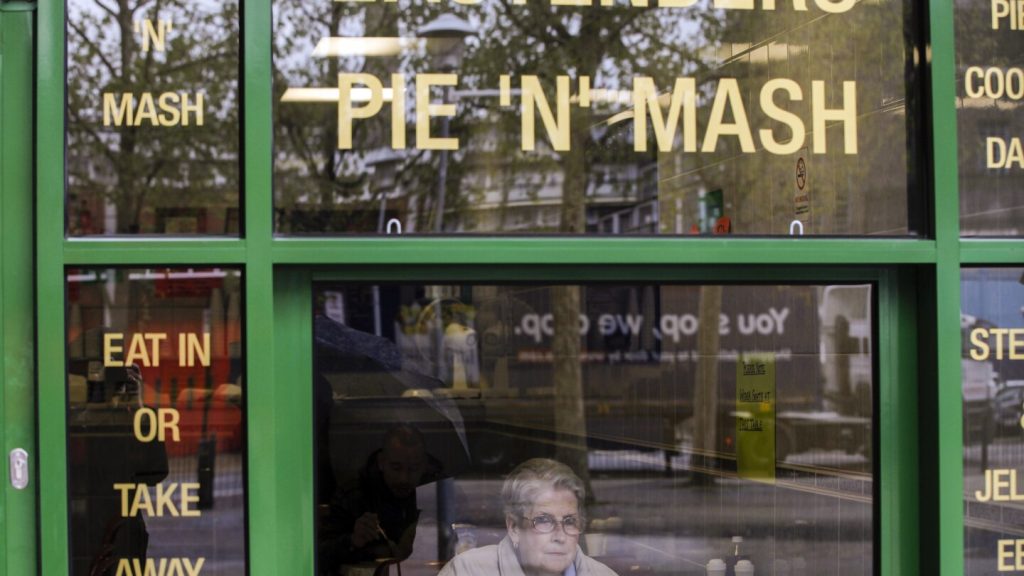Holden said he believes the protected status would help pie and mash shops attract customers looking for an authentic experience and boost awareness of the dish, which he described as a “true taste of London.”“For anyone who has grown up in London, lived in London or just visited, they are part of the consciousness in the capital,” he said. “There is an emotional attachment to pie and mash shops.”The proposed protected status is opposed by some restaurant owners.
Ellie Patsalos, who runs M.Manze, a chain of pie and mash shops in London founded in 1902, said that while she supports the idea of preserving the dish’s heritage, particularly in light of the economic difficulties facing small businesses amid the coronavirus pandemic, she worries about the unintended consequences of regulation.“I don’t think you can say one recipe is better than another,” she explained. “I worry that it will become something that you don’t want it to be.”Patsalos said she believes pie and mash shops should be kept as small family businesses run “not the ‘posh boys’ out to make money but the legacy that we are carrying on. When you try to commercialize it, I think that’s when you would lose the essence of it.”
Campaigners say the dish is “iconic,” but acknowledging that its place in the public appetite is not as secure as it once was. To younger generations raised on a diet of fast food and ethnic cuisine, the tradition of eating pie and mash may seem old-fashioned and less appealing.
Holden sees the protected status not only as a way to preserve a quintessentially working-class London meal for posterity but also to provide economic benefits to regions like his own where the dish is popular. The Thames Estuary “was the heartland of pie and mash” before the meal spread across the British capital and beyond, he said.
In his speech, Holden described pie and mash shops as important community hubs as well as eateries, where customers from all walks of life could come together to grab a quick and affordable bite to eat. In the debate, he drew a contrast between the pie and mash of old London and the highly processed fare of major fast-food chains, which dominate modern high streets.“The traditional nine-to-five working-day Londoners who would finish work down the docks or down the wharves would grab a quick bit of pie and mash before they went home,” he said. “It was easy, it was accessible and it was good food.”
The European Union has awarded Traditional Speciality Guaranteed status to traditional foodstuffs from many regions of Europe, including feta cheese from Greece, Stilton blue cheese from England, and Parma ham from Italy. British applications for such designations are submitted through a designated body, the Department for Environment, Food and Rural Affairs. If granted, the recognition means that the product must be made to specific traditional recipes or methods, with labels checked for accuracy and enforced by regulators.


